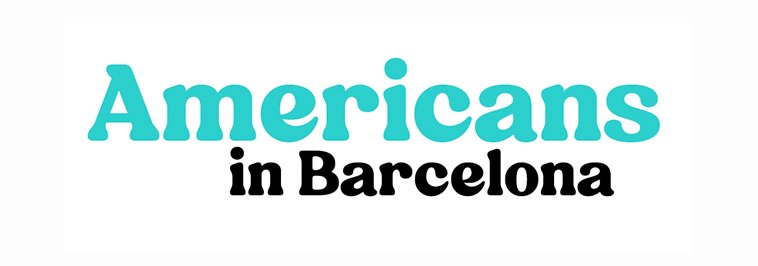When it comes to the extension of Barcelona, if we think of this in square kilometers we might consider the city relatively small. But if instead of considering its dimensions on a map, we think of Barcelona in terms of neighborhoods, then the city might look huge! Here are the numbers: there are 10 Barcelona districts and… 73 neighborhoods!
So we decided to write an article to have a clearer map in mind when walking the (more than 4.000) streets in Barcelona.
Ciutat Vella
It is the oldest district in Barcelona. So that makes it one of the most interesting Barcelona districts, specially for those who want to explore the many centuries of history that this city holds. Historical sites such as the Catedral de Barcelona or the Sant Felip Neri square are located in this district, and so it is the Barceloneta or Ciutadella area. So, quite a large district!
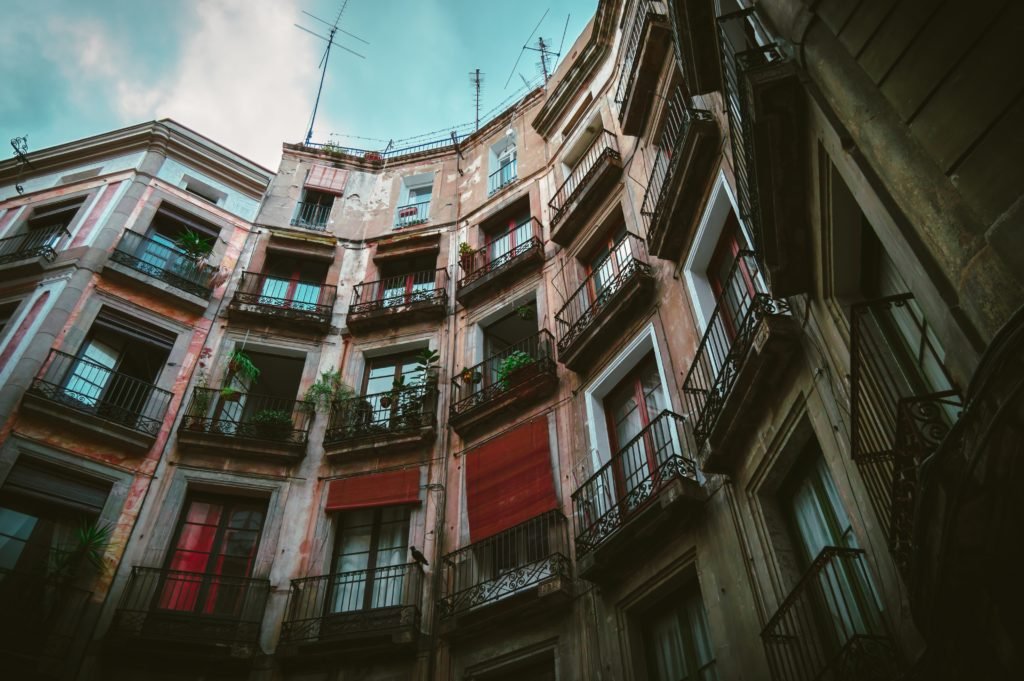
These are the neighborhoods included in this Barcelona district:
- La Barceloneta
- El Gòtic
- El Raval
- Sant Pere
- Santa Caterina
- La Ribera
Eixample
This Barcelona district has some of the most iconic buildings in the city, such as la Pedrera, Casa Batlló or Casa Amatller, which are actually located in one of the most famous avenues, Passeig de Gràcia. Also, this Barcelona district is home to probably the most famous building of all: la Sagrada Família.
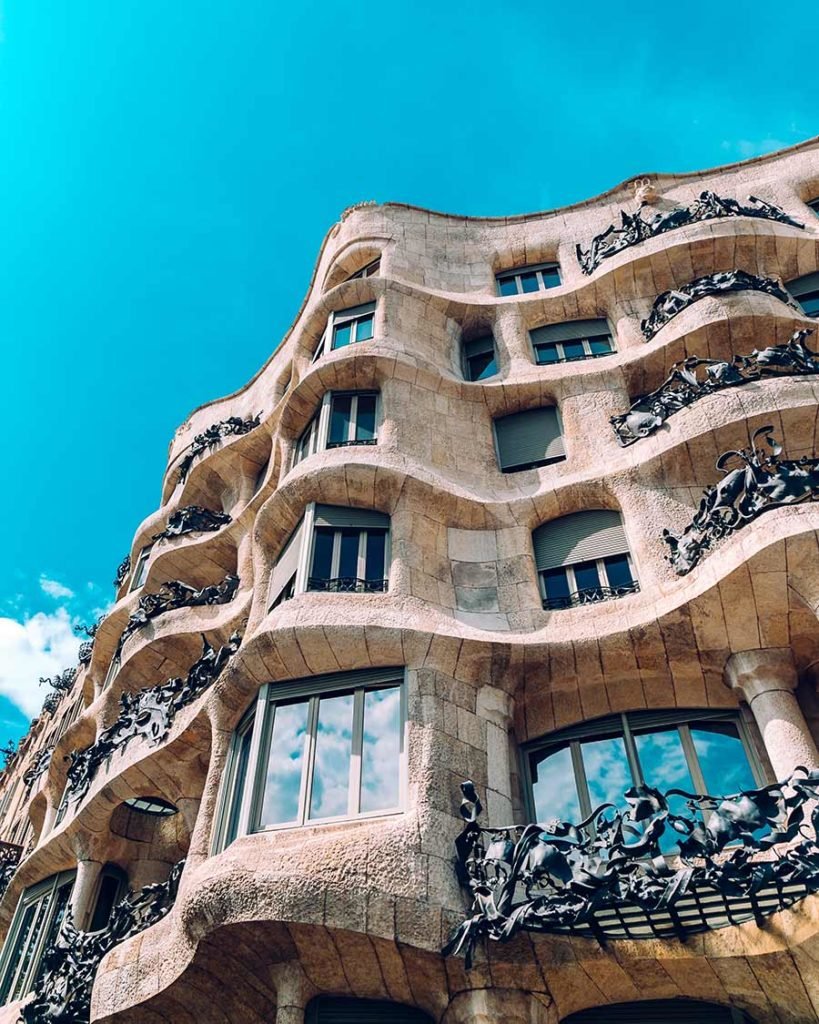
These are the neighborhoods included in this Barcelona district:
- L’Antiga Esquerra de l’Eixample
- La Nova Esquerra de l’Eixample
- La Dreta de l’Eixample
- Fort Pienc
- Sagrada Família
- Sant Antoni
Sants-Montjuïc
The name of this Barcelona district gives as a hint: the Montjuic mountain is located in this district, the largest of all Barcelona districts. It has one of the most beautiful views of the city, you just have to walk past the Font de Montjuic. Gardens and museums give this district some parts of its personality. And also, it has some great areas in Poble-sec to have lunch or drinks with friends.
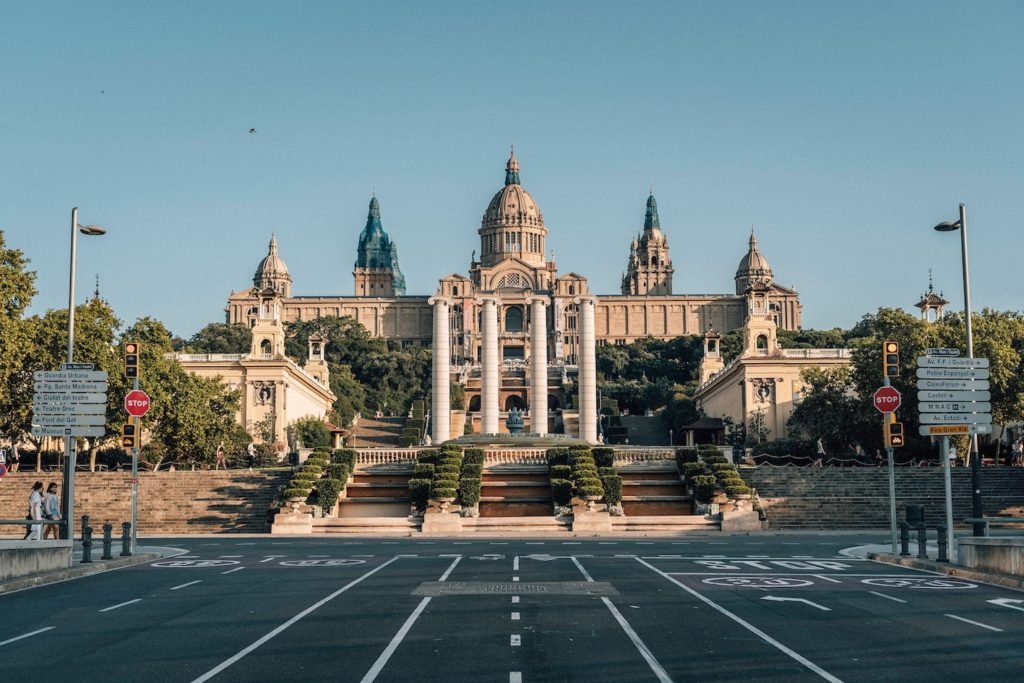
These are the neighborhoods included in this Barcelona district:
- Font de la Guatlla
- Bordeta
- Hostafrancs
- Marina de Port
- Marina del Prat Vermell
- Poble-sec
- Sants
- Sants-Badal
- Montjuic
- Zona Franca
- Port
Les Corts
This district has one of the important “monuments” for soccer lovers… Indeed, les Corts is where the Futbol Club Barcelona stadium is located. But les Corts district has so many more things to offer than that. For instance, the Pedralbes monastery and its beautiful gardens. Nice restaurants where to have dinner, sports bars…
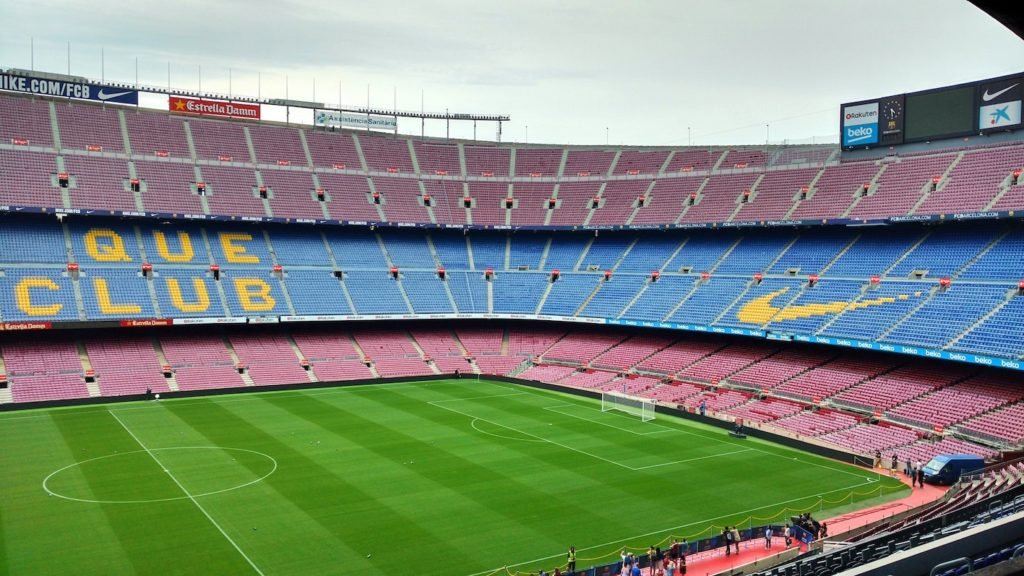
These are the neighborhoods included in this Barcelona district:
- Les Corts
- La Maternitat y Sant Ramon
- Pedralbes
Sarrià/Sant Gervasi
This is more of a residential district, and it is known for being a “well-off” area since is home to many wealthy families. It has quite a lot of green areas and parks (specially compared to other Barcelona districts). A pretty nice and quiet district in the city.
These are the neighborhoods included in this Barcelona district:
- El Putxet i Farró
- Sarrià
- Sant Gervasi – la Bonanova
- Sant Gervasi – Galvany
- Les Tres Torres
- Vallvidrera
- Tibidabo
- Les Planes
Gràcia
One of our favorite districts! As we described in the article What is it like to live in the Gràcia neighborhood, this area feels like a little town away from the city crowd. But at the same city, really close to the city center! There are many beautiful small businesses, and Gràcia has many lovely squares where you can stop by and have drinks or even lunch.

These are the neighborhoods included in this Barcelona district:
- Vila de Gràcia
- Camp d’en Grassot i Gràcia Nova
- La Salut
- El Coll
- Vallcarca i els Penitents
Horta-Guinardó
This is also more of a residential district, but it also has some historical gems such as the Recinte Modernista de Sant Pau or Búnkers del Carmel, and iconic places such as the beautiful maze Laberint d’Horta.
These are the neighborhoods included in this district:
- El Guinardó
- El Baix Guinardó
- Can Baró
- El Carmel
- La Font d’en Fargues
- Horta
- La Clota
- Montbau
- Sant Genís dels Agudells
- La Teixonera
- La Vall d’Hebron
Nou Barris
Parc Central de Nou Barris or Casa de l’Aigua are two of the most popular places in this district, and it is also more of a residential district, which welcomed part of the worker immigration that arrived in Barcelona in the 1950s and 1960s. Beautiful green areas have been built during the last years, as well as attractive commercial streets.
These are the neighborhoods included in this district:
- Can Peguera
- Canyelles
- Ciutat Meridiana
- La Guineueta
- Porta
- La Prosperitat
- Les Roquetes
- Torre Baró
- La Trinitat Nova
- El turó de la Peira
- Vallbona
- Verdum
- Vilapicina
- Torre Llobeta
Sant Andreu
If you ask about Sant Andreu to someone who has lived in this district for a long time, the answer will probably be that it feels like a little town away from Barcelona. Indeed, Sant Andreu is more of a residential district, and kind of familiar as well. There is also emerging some creative spaces such as Fàbrica i Coats: Fàbrica de Creació or Nau Bostik.
These are the neighborhoods included in this district:
- Baró de Viver
- Bon Pastor
- El Congrés i els Indians
- Navás
- Sant Andreu de Palomar
- La Sagrera
- Trinitat Vella
Sant Martí
Some kilometers of Barcelona beaches and museums such as Museu del Disseny de Barcelona and Museu de les Ciències Naturals are some of the highlights of this district. Also, a beautiful avenue called Rambla del Poblenou which has nice restaurants to have lunch, as well as ice-cream parlors (yummy!).
These are the neighborhoods included in this district:
- Besòs i el Maresme
- El Clot
- Camp de l’Arpa del Clot
- Diagonal Mar i el Front Marítim del Poblenou
- El Parc i la Llacuna del Poblenou
- Poblenou
- Provençals del Poblenou
- Sant Martí de Provençals
- La Verneda i la Pau
- Vila Olímpica del Poblenou
